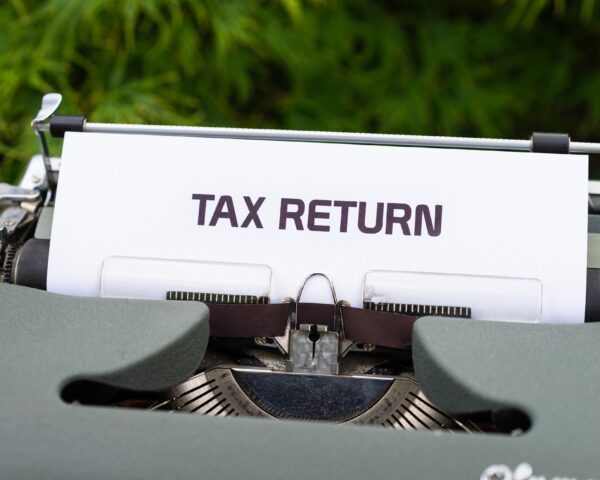After 12 months of chaos wreaking havoc on public and private sector finances, Chancellor Rishi Sunak sets out a plan to help UK business, Individuals and the Government recover.
Time will tell what impact this will all have.
What’s in there for you? Read on…
Help for the Self-employed, Directors and Employees
Furlough scheme extended…
The Chancellor announced the extension of the furlough scheme (Coronavirus Job Retention Scheme or ‘CJRS’) until the end of September 2021. Workers will continue to receive 80% of their current salary for hours they don’t work because they’ve been furloughed.
The support will be provided by a grant to their employers. Employers will need to make a contribution of 10% of the worker’s salary for unworked hours in July, and a 20% contribution in August and September. The £2,500 monthly limit for the grant remains in place.
Company Directors (still no help!)
There was no announcement of any further support for small limited company directors who take most of their income through dividends, and can only claim a small amount (or even nothing) on the CJRS scheme.
New measures to help the newly self-employed through the Self-Employed Income Support Scheme (SEISS)
The scope of the SEISS grant has been extended, and the fourth grant under the scheme will now be available to individuals who began self-employment in the 2019/20 tax year, as well as those who have previously claimed.
Individuals who are eligible will be able to claim the fourth round of SEISS at 80% of average trading profits capped at £7,500 for three months. The fourth grant will be available in April. There will be a fifth grant to cover May, June, and July, likely to be available over the summer. If your turnover has fallen by 30% or more, you’ll receive the full 80% grant. If turnover has fallen by less than 30%, the grant is reduced to 30%.
To be eligible for the fourth grant, and for new entrants to the scheme, you must have filed a Self Assessment tax return for the 2019/20 tax year by midnight on 2nd March 2021. All other eligibility criteria will remain the same as the third grant. Further details will be published in due course.
Previous grants (applications for the third grant closed on 29th January 2021) have involved a taxable grant worth 80% of average monthly trading profits, paid out in a single instalment covering three months’ worth of profits, and capped at £7,500 in total.
Help for businesses
We were happy to see the announcement of the recovery loan scheme (to replace the bounce back loan) and the additional grants. These cash injections are expected to help suffering business with the working capital they need in order to get back of their feet.
Recovery loan scheme… Get in the queue fast!
From 6th April 2021, the Recovery Loan Scheme will provide lenders with a guarantee of 80% on eligible loans between £25,000 and £10 million. The scheme will be open to all businesses, including those who have already received support under the existing COVID-19 guaranteed loan schemes. We’ll give further details on the new scheme once they’re available.
Our advice – Get in the queue with your bank asap! With the government only guaranteeing 80% of these loans (versus 100%) we expect additional checks versus the bounce back scheme. With certain banks it was pretty slow to get the capital released for the Bounce Back Loans!
Restart grants
New ‘Restart Grants’ to help businesses in England get back trading by injecting capital. These will begin paying out in April.
- Non-essential retail businesses will receive grants of up to £6,000 per premises.
- Hospitality and leisure, including personal care and gyms, which are more impacted by restrictions and may not open until later in the year, can each receive grants of up to £18,000.
Measures to help businesses reopen across the rest of the UK are expected to be announced in due course by the relevant devolved administrations.
Business taxes
We were happy to see the announcement that business taxes will only impact the top 10% of corporation tax payers in the country. It’s essentially a tax on big business with smaller companies remaining relatively “unharmed” by the announcement.
Corporation Tax to increase for larger companies
The Corporation Tax rate will remain at 19% for business profits up to £50,000, but will have a tapered increase to a main rate of 25% for profits over £250,000 from April 2023.
VAT
The VAT cut to 5% will remain in place until the end of September for the hospitality and tourism industries. It will then rise to 12.5% for another six months, before returning to the full 20% rate in April 2022. No other changes are being made to VAT.
The threshold for businesses to register for VAT will remain at £85,000 until 2024 when it will be reviewed.
Business investment tax relief
A new “super-deduction” tax relief was announced for businesses to reduce their tax bill by 130%. This measure will allow a temporary first-year allowance; including a super-deduction of 130% on most new plant and machinery investments which would have ordinarily qualified for 18% relief, and a first year allowance of 50% on most new plant and machinery investments which would have ordinarily qualified for 6% relief.
What counts as plant and machinery? If the asset has a function, it will be plant and capital allowances can be claimed. However, if expenditure has been incurred on part of the setting within which the business is run, it will not be plant and plant and machinery allowances cannot be claimed.
There are still some details to be fleshed out here but if you’re investing in plant and equipment, or upgrading the function of your building there may be an additional benefit in doing so over the next two years.
Annual Investment Allowance (AIA)
No changes here. The AIA is still £1m meaning the first £1m you spend on capital expenditure is allowed as an immediate tax deduction. Meaning, for small business the 130% super deduction (above) is good but only gives an additional 30%, if it can be claimed.
Loss relief for businesses (this is a goodie)
The Chancellor also announced the extension of the normal loss carry-back rules from one year to three years for losses of up to £2 million. This will enable tax repayments to be claimed, providing relief and cash flow support for businesses.
When would this apply – if you made a loss this year, or last year, but made profits in the prior three years. You can carry those losses back and get an immediate tax deduction.
Business rates reliefs
Eligible retail, hospitality and leisure properties in England will continue to receive 100% business rates relief from 1st April 2021 to 30th June 2021.
This will be followed by 66% business rates relief for the period from 1st July 2021 to 31st March 2022, capped at £2 million per business for properties that were required to be closed on 5th January 2021, or £105,000 per business for other eligible properties.
Nurseries will also qualify for relief in the same way as other eligible properties.
Other help
Apprenticeships
The apprentice hiring incentive in England was extended to September 2021 and the payment increased to £3,000. A flexi-apprenticeship scheme was also announced that will allow apprentices to work with multiple employers in a sector.
Help to Grow Programme
The Chancellor announced a new Help to Grow scheme to offer up to 130,000 companies across the UK a digital and management boost. The programme aims to help small and medium-sized businesses across the UK learn new skills, reach new customers and boost profits. Further information is on the Gov.uk website, where you can also register your interest.
Personal tax
Personal Tax, Allowances and Savings
Income Tax Rates and Thresholds
The basic personal tax-free allowance will increase to £12,570 from April 2021, and then it will stay at that level until 2026. The Higher Rate threshold will increase to £50,270 and will then also be frozen to 2026.
In the 2021/22 tax year the new National Insurance thresholds are:
- Primary Threshold/Lower Profits Limit increases to £9,568.
- Upper Earnings Limit (UEL)/Upper Profits Limit increases to £50,270.
No changes were announced to the rates of Income Tax or National Insurance.
National Minimum Wage
The government confirmed that the National Minimum Wage would rise to £8.91 per hour.
Inheritance Tax
The threshold for paying Inheritance Tax has not changed at £325,000 and will be maintained up to 2026.
Pensions Lifetime Allowance
The pension’s lifetime allowance remains at £1,073,100 and will be maintained at that level up to 2026.
Capital Gains Tax
The Capital Gains Tax annual exempt amount remains at £12,300 and will be maintained at that level up to 2026.
Personal Savings
The band of savings income that is subject to the 0% starting tax rate will remain at its current level of £5,000 for 2021-22.
The adult ISA annual subscription limit for 2021-22 will remain unchanged at £20,000.
The annual subscription limit for Junior ISAs and Child Trust Funds for 2021-22 will remain unchanged at £9,000.
Mortgage Guarantee Scheme
Mortgage Guarantee Scheme
A new mortgage guarantee scheme will be introduced in April 2021. This scheme will provide a guarantee to lenders across the UK who offer mortgages to people with a deposit of just 5% on homes with a value of up to £600,000. Under the scheme, all buyers will have the opportunity to fix their initial mortgage rate for at least five years should they wish to.
Any Questions? Get in touch with the PennyBooks team and we’ll be able to help.









